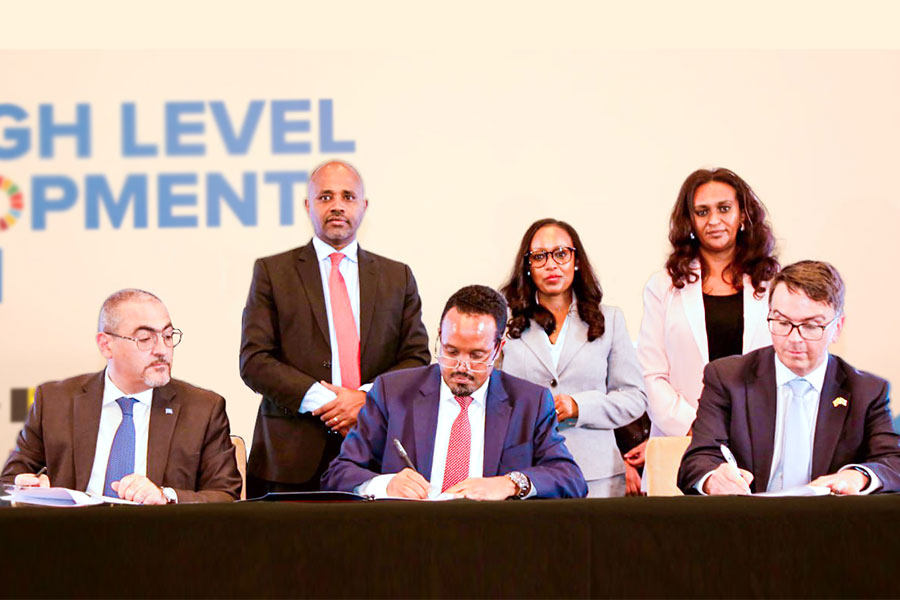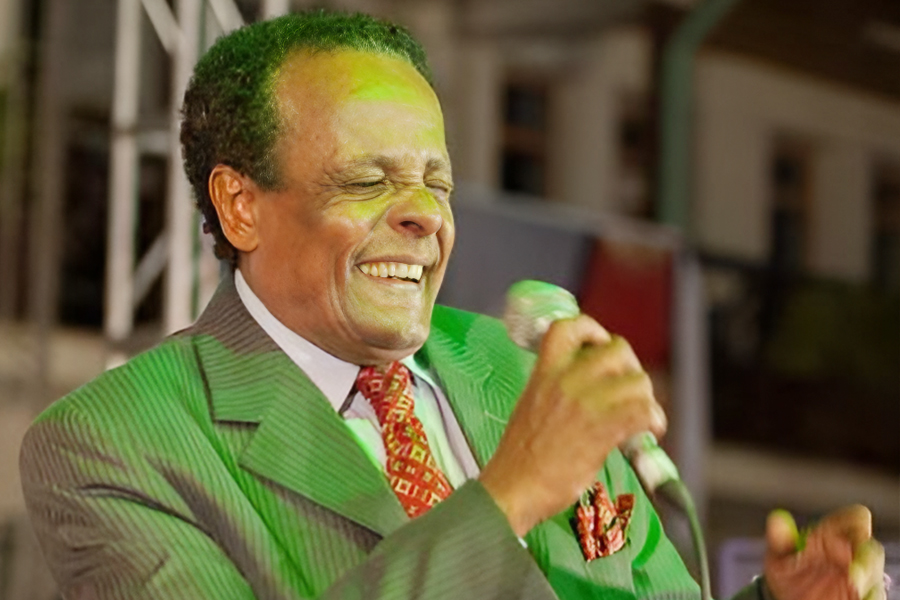
Viewpoints | Apr 19,2025
Jun 8 , 2019
By Ephrem Yirgu
Interns’ questions are frequently overlooked, and they cannot stand up for their rights even when the future of their career is on the line. Moreover, for the high level of risks interns are exposed to and the number of hours they work per week, the compensation they receive is laughable, argues Ephrem Yirgu, a licensed Medical Practitioner who finished his internship recently.
I was in the hot seat in a "morning session". The term refers to a meeting of representatives of the different health care professionals involved in the care of patients. There I was, a medical intern, presenting a series of cases to senior doctors, whose job was to use the platform to monitor the functions of the case team as well as teach interns and low-level physicians. The teaching could potentially range from basic science training to general management principles.
The meeting was tense, and I had barely slept over the weekend. I was on a 24-hour duty on that Saturday on top of extra night shifts over the weekdays. I was only supposed to go through about 10 cases, but each chart was inadequately documented and improperly explained.
I presented about half of the cases without so much as a hiccup, defended the management and adequately described the current status of each case. As I had already expected, however, the department head soon started to notice some of the gaps I myself had seen in the charts.
It is important to remember the number of interns assigned was hilariously inadequate to the amount and number of hours the work required. There were several weeks where I had to work over sixty duty hours, excluding the regular 9 to 5. This meant getting very little sleep during the week, with the usual refrain, “this is the life of an intern.”
So, there I was, with all these thoughts burning in my head, presenting the cases. Then the department head looks down at the chart and says, “wait.” I knew the question before he asked, and I knew I did not have the answer. I was working in another ward at the time, and I knew that the missing part of the report was not adequately explained, because I could not find it in the patient’s charts.
Any other day and my response might have been to either stay calm and accept the blame as my responsibility or try to suggest a possible explanation for the question. This time, however, I snapped. Perhaps it was the exhaustion, perhaps it was the manner in which the senior asked, “How do you not know this?”
I responded in a controlled tone that failed to hide my rising anger.
“I did not evaluate this patient myself. In fact, I did not evaluate any of the patients I am presenting today. I’m reporting what I found in the charts.” I expected the interchange to escalate quickly with obviously dire consequences to me. Interns are, after all, at the mercy of everyone in the department, especially the department heads.
Fortunately and inexplicably, the medical director nodded understandingly and quickly said, “proceed to the next case.” What followed was blurry but uneventful. The situation did not escalate, and in a few weeks, I had completed my rotation. I was fatigued, depressed and had lost significant weight, but I was finished.
I have heard many scenarios detailing circumstances in which interns are physically, mentally, and in some cases, sexually abused at the workplace. In fact, these begin much earlier in the course of a medical doctor’s training. Yes, it is true other fields also report similar narratives, but the one in the medical field stands out because there is no time to even self-reflect or get some space to heal in peace.
It is on top of these issues that interns are exposed to hazards related to being in hospitals and clinics. These include infections (at a much higher rate than average, despite Prime Minister Abiy’s belittling remarks) and altercations with drunk patients or aggressive attendants. This is also part of the job.
What makes it an issue is that there is no governing body that takes responsibility to address these problems. Interns’ questions are frequently overlooked, and they cannot stand up for their rights when the future of their career is on the line. Moreover, for the high level of risks interns are exposed to and the number of hours they work per week, the compensation they receive is laughable. Add to these the poor sanitary conditions of their workplace and you are looking at the physical and psychological battles interns face.
Toward the end of my internship training, I had entertained the thought of refusing to work in my mind. What would happen if I stopped working? The answer was simple. All those years of hard work would be erased, and I would be a dropout with all its personal and social consequences. But I had another thought. What if all interns stopped working?
It was interesting to find out I was not alone. This idea of going on strike had been on every intern’s mind at some point. In fact, interns working at Arsi decided it was time for action and went on strike. They held a demonstration to explain their actions and were met with a disproportionate reaction.
These terrifying events culminated in an outcry throughout the entire medical industry. This level of brutality was a step too far. It catalyzed the voices of discontentment of several senior doctors in the medical sector.
The Prime Minister then called all health professionals to a meeting. I did not believe the problems would find solutions in a meeting with Abiy, a sentiment shared by many physicians. Why should we expect anything? Neither the Ministry of Health nor higher officials in the government had ever bothered to give us a hopeful answer.
I had hoped the physicians present at the meeting would use the occasion as a declaration, present the problems in a concise manner, demand immediate solutions and declare they would stop working altogether if the response was inadequate. Several people outside the medical field had questioned the morality of such a stand. My response is threefold: first, it is always the doctor who shoulders the blame when in fact the problem is with the system; the corrupted system is claiming more lives than should be tolerated and in essence, allowing this system to continue is allowing those deaths to occur; and finally, doctors as citizens, are entitled to demand better pay and working conditions.
The meeting with the Prime Minister was a complete disaster. The entire medical field was ridiculed, and the practitioners were insulted. The Prime Minister questioned the professionalism of Ethiopian doctors, made threatening remarks and gave belittling comments about the work ethic of those in the field. More importantly, he also noted that he was notified about the increasing discontent within the intern community months in advance, unintentionally admitting that he only decided to call the meeting after senior doctors started to add their voices to the throng.
This was always going to be a difficult problem to manage for the PM. However, it was expected that his course of action would be accepting the complaints and involving the medical community in solving the problems together.
Interns started nationwide strike in response to the meeting. In that one meeting, the PM did the unthinkable - he united a divided community of interns and seniors, shortcutting the customary outcome where interns are aggressively targeted by their seniors in morning sessions.
It is difficult to tell if the movement will bring about any sustainable relief for physicians. Several reassurances the government gave since the start of the strikes have been found to be misleading and superficial. Interns at several universities have been told to pack their bags and vacate the premises. General practitioners in Gonder, who had joined the interns, have been fired. Residents at several institutions have been warned that they would be considered dropouts if they did not return to work soon. The leaders of the Ethiopian Physician Union, created by sympathetic seniors to drive the movement, are all being followed closely to make sure they do not rally the country’s physicians to a coordinated strike.
The media coverage has been disappointing. It has not given the doctors adequate representation.
Still, medical professionals appear to be a greedy group and unreasonable for a public largely unaware of the details of the chaos in the healthcare system.
My mind wanders back to those morning sessions. All those hours I toiled like a robot, only to be told that it was not good enough.
It is disheartening that a government that was supposedly fundamentally different to the one prior would try to stifle questions instead of providing an honest and transparent platform for discussion.
I for one did not mistake the threatening tone of the PM’s voice. It is clear that for the government, despite the country’s many health issues, the healthcare system is not considered a priority. Now there is a riddle.
PUBLISHED ON
Jun 08,2019 [ VOL
20 , NO
997]


Viewpoints | Apr 19,2025

Fineline | Apr 04,2020

Radar | Jun 11,2024

Radar | Sep 27,2025

Radar | Jul 13,2024

Fortune News | Mar 16,2024

Commentaries | Sep 14,2024

My Opinion | Jun 24,2023

Viewpoints | Aug 16,2020

Obituary | Mar 02,2024

Photo Gallery | 175281 Views | May 06,2019

Photo Gallery | 165506 Views | Apr 26,2019

Photo Gallery | 155819 Views | Oct 06,2021

My Opinion | 136794 Views | Aug 14,2021

Dec 22 , 2024 . By TIZITA SHEWAFERAW
Charged with transforming colossal state-owned enterprises into modern and competitiv...

Aug 18 , 2024 . By AKSAH ITALO
Although predictable Yonas Zerihun's job in the ride-hailing service is not immune to...

Jul 28 , 2024 . By TIZITA SHEWAFERAW
Unhabitual, perhaps too many, Samuel Gebreyohannes, 38, used to occasionally enjoy a couple of beers at breakfast. However, he recently swit...

Jul 13 , 2024 . By AKSAH ITALO
Investors who rely on tractors, trucks, and field vehicles for commuting, transporting commodities, and f...

Oct 18 , 2025
The political establishment, notably the ruling party and its top brass, has become p...

Oct 11 , 2025
Ladislas Farago, a roving Associated Press (AP) correspondent, arrived in Ethiopia in...

Oct 4 , 2025
Eyob Tekalegn (PhD) had been in the Governor's chair for only weeks when, on Septembe...

Sep 27 , 2025
Four years into an experiment with “shock therapy” in education, the national moo...

Oct 18 , 2025 . By NAHOM AYELE
In a sweeping reform that upends nearly a decade of uniform health insurance contribu...

Oct 18 , 2025 . By BEZAWIT HULUAGER
A bill that could transform the nutritional state sits in a limbo, even as the countr...

Oct 18 , 2025 . By SURAFEL MULUGETA
A long-planned directive to curb carbon emissions from fossil-fuel-powered vehicles h...

Oct 18 , 2025 . By BEZAWIT HULUAGER
Transaction advisors working with companies that hold over a quarter of a billion Bir...